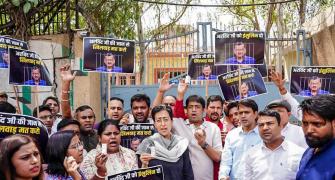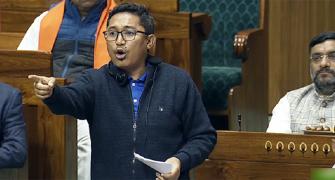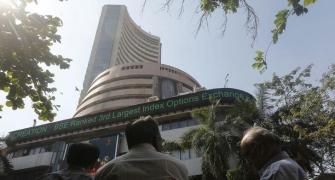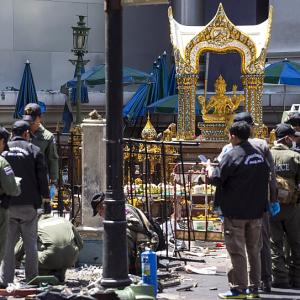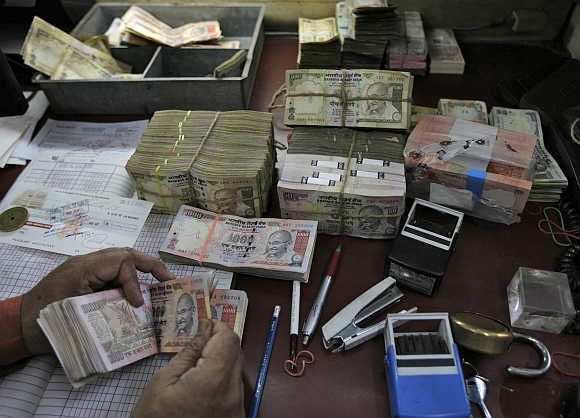 But experts say govt has hardly given up control in these entities
But experts say govt has hardly given up control in these entities
Shares of public sector banks, led by Bank of Baroda, rallied sharply on Monday, defying the overall weakness in the market.
The rally followed the government’s plan to bolster state-owned lenders amid a rise in bad loans.
The BoB stock gained 15.2 per cent, adding to Friday’s gains of about four per cent. Canara Bank rallied 13.4 per cent and Indian Bank and Bank of India gained nine per cent each.
The benchmark BSE Sensex, meanwhile, lost 189 points, or 0.67 per cent, due to a sharp fall in the rupee, amid weakness in the Asian market.
Shares of leading private banks, including Axis Bank and HDFC Bank, fell about a per cent.
On Friday, the government appointed non-executive chairmen and chief executives in five large public sector banks and said it would set up an umbrella body, a bank boards bureau, to look into the appointment of the top management in public sector banks.
This was in line with the recommendations of a committee set up under former Axis Bank chairman P J Nayak to suggest measures to improve governance in public sector banks.
While the government said it acted in line with the Nayak committee by setting up a BBB, experts and analysts weren’t convinced.
The Nayak committee had suggested all BBB members be former bankers and that the government distance itself from the appointment process.
The finance ministry, however, said of the six BBB members, two should be government representatives and one from RBI.
The structure of the BBB is almost similar to the current selection committee.
“If you have a government monopolising the BBB, why create it? It was meant to be independent.
"The whole idea behind the BBB was to distance the search and selection process from the government. I think it is not reformist. There is no change in the content,” said a former banker.
The second phase of the government’s planned reforms is the formation of a bank investment company.
The Nayak committee had suggested the government transfer its stake to the BIC, a core investment company registered with RBI.
The government is yet to give any clear signal on when the BIC will be formed, as it will require the approval of lawmakers.
While welcoming the government’s decision to change the appointment process of key executives, analysts expressed disappointment over the absence of a plan to tackle the bad loans plaguing public sector banks.
‘Old Wine In a New Bottle’, a report by Ambit, said, “Oddly, the revamp plan has no new ideas to address asset quality issues.
"While the government is claiming it will grant greater independence to these banks, the changes to compensation and hiring policies (at the mid-level) to attract specialist skills are unclear. . . the PSU banks’ disparity relative to private sector banks is unlikely to close easily.”
Analysts said the rally seen in banking stocks on Monday was primarily due to the appointment of senior management executives, the absence of whom was hindering growth at some banks such as BoB.
“Merely providing equity capital is not the solution to revive PSBs.
"There should be greater focus on efficient utilisation of capital. In our opinion, non-performing assets are the single-biggest hurdle to improvement in the health of PSBs, which has not been adequately addressed,” said a report by Nirmal Bang.
Almost all PSU banks trade at a huge valuation discount to peers in the private sector. Analysts said the latest announcement would do little to narrow that gap and ruled out further sharp gains in state-owned banks till there was clarity on the issue of non-performing assets.
CHANGE IN THE AIR
The announcements made by the government on a bank boards bureau were proposed by the P J Nayak committee. But there are significant differences in what the ministry proposed and what the panel recommended
Bank boards bureau
- The Nayak panel said all members should be former bankers; no government or RBI members
- The govt announced the six-member BBB would have banking secretary, RBI deputy governor, PSE member; two former bankers and one expert from some other field
- Impact: BBB is similar to the present selection committee
Appointments
- The Nayak panel suggested chairperson, MD & CEO, EDs be appointed by the BBB
- The govt said it would appoint the top management
- Status quo has been maintained
Bank investment company
- The Nayak panel recommended while BBB was the first phase of the transformation, the BIC was the second
- The govt didn’t give any clear indication on when the BIC would be formed, as it would need Parliament’s approval
Structure of BIC
- The Nayak panel had suggested the govt cut its stake in the BIC to less than 50 per cent
- But the govt wants to hold at least 52 per cent stake in PSBs
- Implication: If the govt continues to hold majority stake, PSBs will be subject to external constraints such as the RTI Act, and investigative agencies




